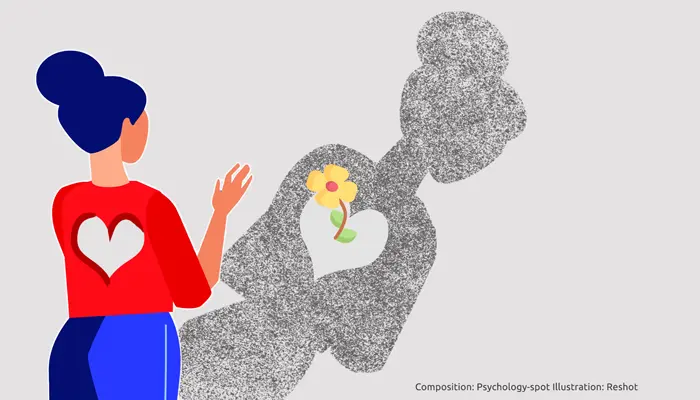
In concentration camps, little things became big things. And also premonitory signals. “When we saw a comrade smoking his own cigarettes instead of exchanging them for food, we already knew that he had given up trusting his strength to keep going and that, once the will to live was lost, he rarely recovered”, said psychiatrist Viktor Frankl on his stay in the Nazi concentration camps at Auschwitz and Dachau.
Frankl realized that the youngest and strongest did not always survive in concentration camps. Many people who apparently had no chance of survival overcame that horror. The key? A rich inner life underpinned by meaning of life, a future goal, something to strive for and hold on to.
Don’t look outside, look inside
Our society – at least the society we were until recently – lived completely outwardly. It encouraged us to seek the satisfactions of our inner dissatisfaction in things. It encouraged us to keep ourselves constantly busy. Always doing more. Always buying more. In a state of continuous numbing that alienated thought and distanced us more and more from ourselves.
All of a sudden this has stopped and many have run out of handholds, experiencing a true abstinence syndrome. An abstinence from that constant flow of external stimuli with which the consciousness was numb.
However, to face extreme situations we need to develop a richer inner life. Look inside. Be aware of ourself. Stop turning outward in search of strength and find that strength within us. It’s about taking on the challenge. The time we had to live. The particular conditions of each one.
“That intensification of the inner life” allows us to “take refuge against the emptiness, desolation and spiritual poverty of existence” when things go wrong, Frankl said.
Feeding that inner life does not imply closing our eyes to reality, but finding shelter and comfort by going beyond what we can see and touch. “People with a rich intellectual life suffered a lot, but the damage caused to their intimate being was less because they were able to isolate themselves from the terrible environment, going back to a life of inner wealth and spiritual freedom”, explained the psychiatrist.
Search your meaning of life
When faced with extreme challenges, mental strength often underpins physical strength. The ability to keep going, no matter what happens, arises from our having a reason to fight. And that we are able to hold on to it tooth and nail. As Nietzsche would say: “Who has something to live for, is able to bear any how.”
The meaning of life, that reason to fight, is unique and inalienable. It is the only possession we have left when we reduce ourselves to naked existence, when we hit the bottom emotionally. It is that what we cling to and what gives meaning to our life, beyond life itself. It is what encourages us to say “yes to life”, despite everything.
That motif is not usually found randomly. Frankl was convinced that we need a “Will to make sense”, which implies being able to discern the essential from the superfluous, clarify our values and set ourselves a future goal, without which it is easy to allow ourselves to be overcome by circumstances.
In an exceptional situation, we can “Turn life into an internal triumph or ignore the challenge and limit ourselves to vegetate”, with the secret hope that everything is a nightmare and that tomorrow, when we open our eyes, everything will be as it was before.
But when we go through exceptional situations – those that turn our psychological world upside down – nothing will ever be like before. Whoever has found their strength will be able to take it with them to face the new challenges that will come. This time with more serenity and confidence.
Source:
Frankl, V. (2015) El hombre en busca de sentido. Barcelona: Editorial Herder.



